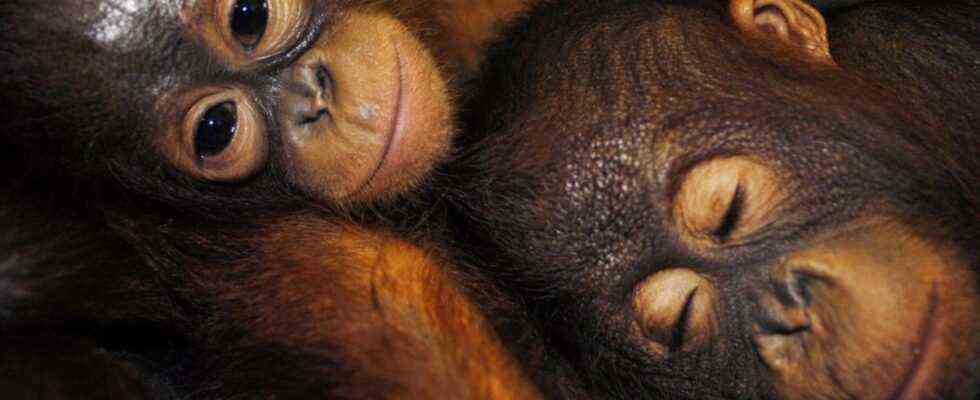Every squirrel, every hedgehog and every migratory bird knows the principle of precaution: If you don’t stock up in autumn, don’t eat a layer of fat or don’t set off for warmer climes in time, you will have a problem in winter.
People who are doing well in the present, on the other hand, find it surprisingly difficult to take precautions. Especially if that were somehow associated with restrictions or even waiver. That was the case with climate change, where hardly anyone saw any need for action twenty years ago. Back then, no one could or would not imagine what the warming of the earth would do. Now the whole thing is repeated with the worldwide extinction of species. It is to despair.
On the World Nature Conference In the past few days, Chinese people have repeatedly emphasized the importance of at least slowing the decline in animals and plants within the next ten years. Whether the appeals are of any use is questionable: the global extinction of species has not yet had any impact on most people.
Homo sapiens? Man overfishes the seas, concretes the land and over-fertilizes the soil
The mistakes that have already been made with climate change – hope that it may not turn out so bad after all, and only react when the consequences can be felt firsthand – must not be repeated in the case of species extinction. When the point has been reached at which the loss of animals and plants is so drastically noticeable as the climate change caused by the flood disaster in Germany a few months ago, it is definitely too late.
There is a difference between the two crises: climate change can to a certain extent be reversed, species extinction cannot. While the concentration of carbon dioxide in the atmosphere could drop again if nothing more, the following applies to species extinction: every animal and every plant that disappears is lost forever.
One million of an estimated eight million animal and plant species are threatened with extinction, and not in the distant future, but many in the coming decades. And the causes are known, they all have to do with humans: the species homo sapiens Overfishing the seas and concreting the land. It over-fertilizes the soil, pollutes it with pesticides and littered the planet with plastic, which can be detected even at the deepest depths and highest altitudes. Even so, many still believe that none of this is their own business.
A fatal mistake. Most people, especially in the industrialized nations, are obviously no longer aware of how much they depend on a functioning nature. From other species, animals and plants, that live with them on earth. This should be made clear to yourself as soon as possible, because the decline in species endangers basic needs: eat, drink, breathe.
Less species protection means: more crop failures, more pandemics
Take nutrition, for example: 75 percent of all plants that humans eat have to be pollinated by animals. Most pollinators are insects, the decline of which has long been scientifically proven in Germany. It is also only logical that at some point there will be no more fish if more and more of them are constantly being taken out of the oceans than can grow back.
Admittedly, most of how humans depend on the diversity of other species is so complex that it is in part not fully understood. The fact that species extinction is taken less seriously than climate change also has to do with the fact that the causalities are less clear and unambiguous. In addition, unlike global warming, there is not just one cause – greenhouse gases – but many different ones.
It is clear, however, that ecosystems such as a forest (which produces oxygen for breathing) or a soil (which filters and cleans water so that you can drink it) are more stable, i.e. work more reliably, the more different animals and plants there are Life. When species disappear from such functioning systems, pests and pathogens often spread. For people this means: the risk of crop failures and pandemics is increasing.
More protected areas are needed – nature needs to be able to rest
But it is not necessary to understand every detail in order to be able to do something about the loss. You also pretty much know what to do. The draft of a new agreement based on the second part of the World Nature Conference To be signed in Kunming next spring is not that bad: halve the use of fertilizers, cut the use of pesticides by two thirds and stop plastic littering. But above all: put 30 percent of the mainland and the seas under protection. In fact, it is fairly well known where exactly these protected areas would have to be in order for them to have the greatest possible effect. The excuse that you have to gain more knowledge first does not apply.
More protected areas would be a good start, because animals and plants would have retreats there where they could rest from humans, raise their offspring undisturbed and reproduce again. However, this requires protected areas that deserve the name. In Germany, 45 percent of the North and Baltic Seas are already under protection. Sounds good, but it isn’t: In more than half of them, it is absurdly legal to fish on a large scale and to drill for oil.
With such lazy tricks you don’t stand a chance against species extinction. The first thing to do to combat it is to stop underestimating the danger. And then accept: Without renouncing the present, the decline of animals and plants cannot be stopped. It would be worthwhile.

